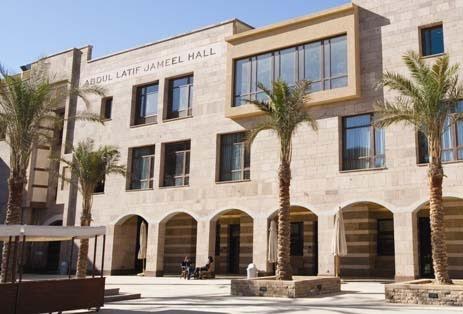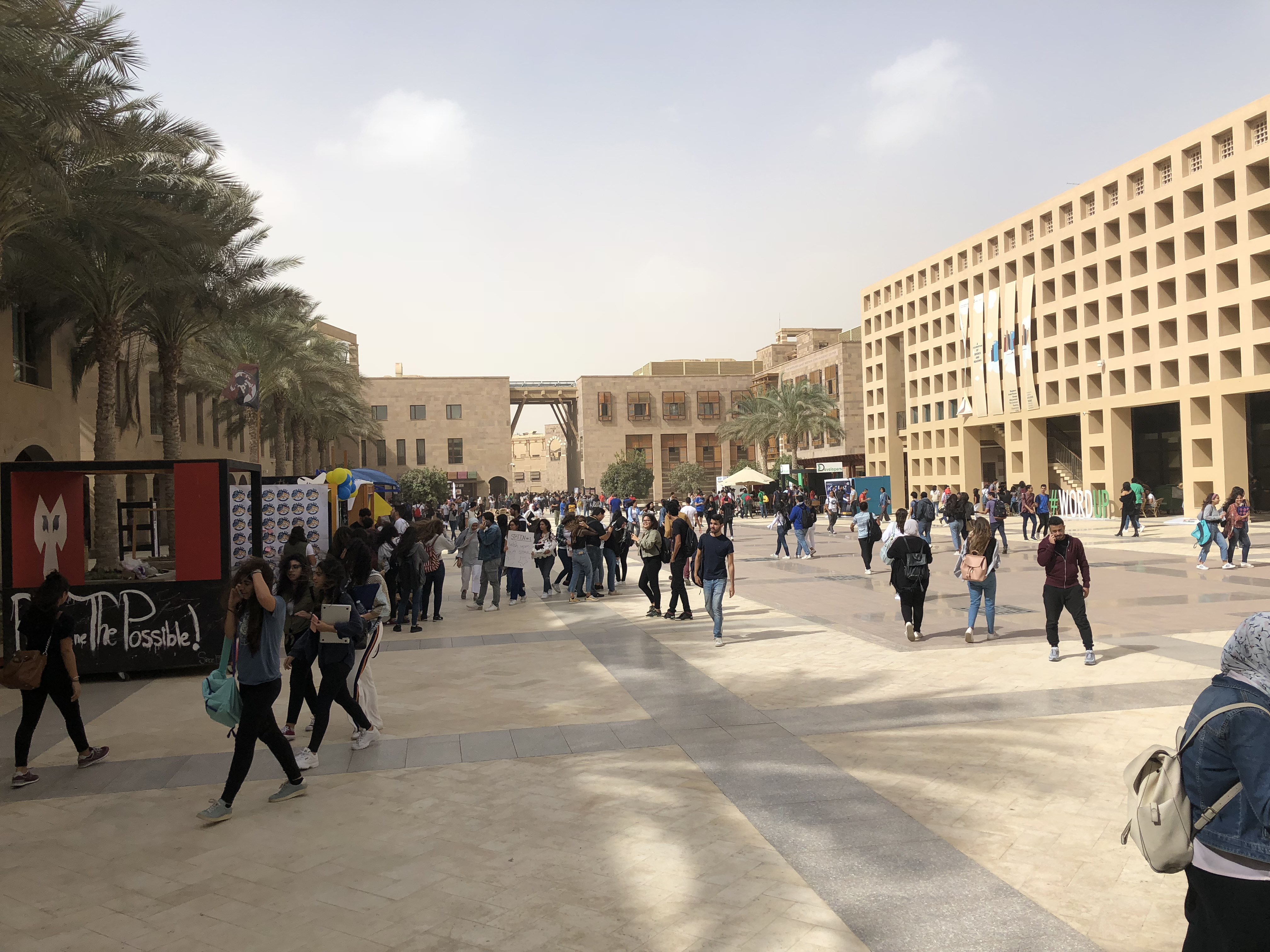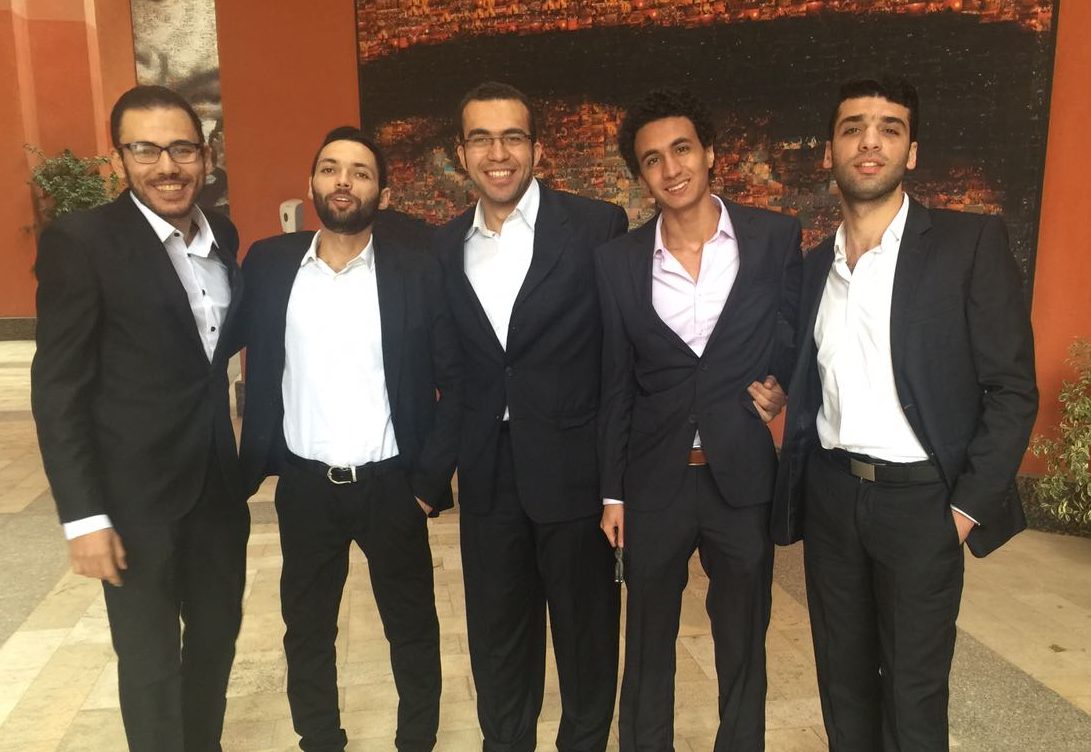Keep the Networks That You Form, GAPP Alumni Say
By: Dalia Abdelwahab
@Lia_A0617
Photo Credit: AUC Website
One of the perks of graduating from AUC is that the bonds built during undergraduate and graduate years persist well after leaving the university.
And AUC is all the better for it because alumni regularly reconnect with their former faculty or even guest lecture.
Hussein El Moataz, a graduate of the Kamal Adham Center for Television and Digital Journalism Master’s program, helps students and faculty with special projects on and off campus.
“Academically speaking, I am now giving back to students as a teaching assistant. I am trying to give them the experience that I had, practical experience, especially,” El Moataz, also a freelance video journalist, told The Caravan.
Giving back to the university by inspiring undergraduates with real-life experiences is critical, alumni like El Moataz say.
Center for Migration and Refugee Studies (CMRS) MA graduate Elena Habersky says the relationship with her alma mater and her school, Global Affairs and Public Policy (GAPP), endures after graduation.
“Keep the networks that you form. These resources will be great when you graduate, and these networks and relationships are very important for you and for those around you. We all assist one another,” Habersky says.
Building connections is something Habersky stresses current GAPP students should maintain even after they leave AUC.
Meanwhile, Kamal Adham Center for Television and Digital Journalism MA graduate Rawan Lasheen says that while students should learn what skills they possess and how to apply them on the ground, going back to seek advice from AUC professors is always a good idea.
“I can always go back to AUC or the GAPP school because I could always ask professors for their advice,” said Lasheen, currently a business presenter at Arab TV network Al Ghad TV, and was recently elected as a youth member of the Egyptian Parliament.
GAPP Dean and Former Egyptian Foreign Minister Nabil Fahmy recently recognized Lasheen and Habersky as prominent alumni during a webinar titled “Challenges and Opportunities for Global and Public Affairs in a Changing Environment”.
Both Lasheen and Habersky used insights gained from their work to comment on some of the critical issues and hotspots of the Middle East.
“I wasn’t a talkative person, but they gave me a push – it’s okay to ask; it’s okay to go find stories. It’s something I learned from the GAPP school,” Lasheen said.
Lasheen, a former Caravan editor, said that working in the media is critical, as it could shed light on stories like those of refugees and migrants. This, she said, requires looking around oneself for stories.
Interest in the current migration and refugee crisis is what brought Habersky to AUC, and eventually a project leader at CMRS.
“It was during my study abroad that I found about the CMRS,” Habersky said.
Habersky added that she chose to study at the CMRS for being at the crossroads of Africa, Asia, the Middle East and North Africa (the MENA region).
She stated that some of the CMRS students are displaced people and refugees.
“AUC starting a refugee scholarship is a great opportunity for those who might otherwise be prohibited from going to college and getting a master’s degree,” Habersky explained.
According to the university’s official website, AUC offers a full scholarship for refugees who wish to study there, and it covers full tuition, housing fees and a monthly stipend.




